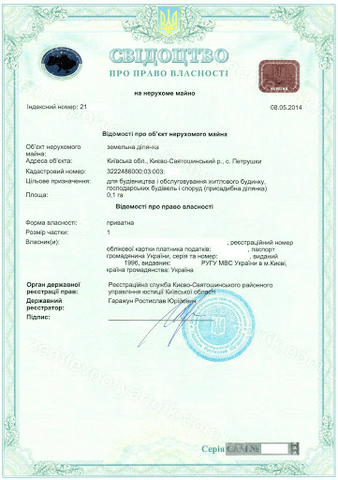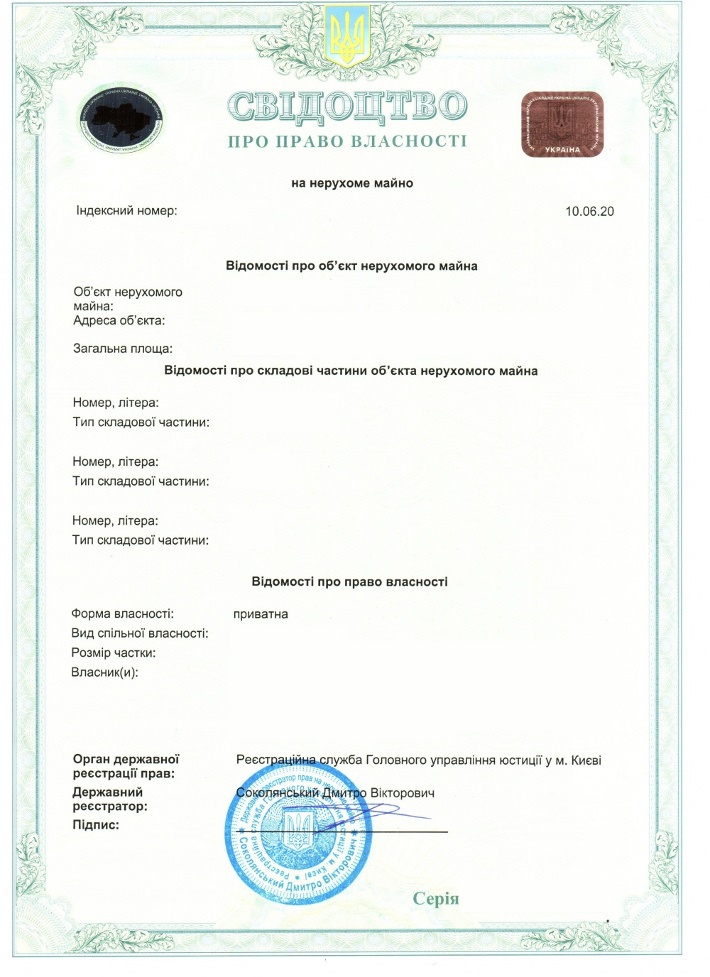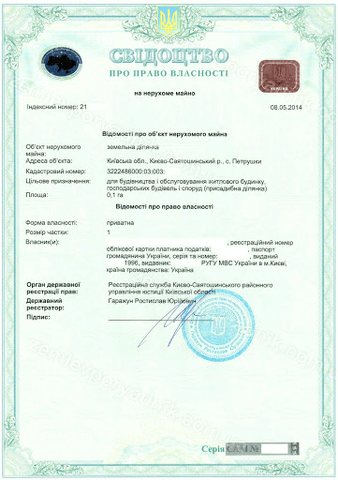How to conclude a real estate exchange agreement in Ukraine? Step-by-step instruction
Cost of services:
Reviews of our Clients
Although barter agreements are not as widely used for real estate transactions as, for example, buying and gifting, they become relevant when payment for real estate is made not in cash but through the exchange of other assets, such as:
- homes, apartments;
- land;
- corporate rights;
- agricultural land, and more.
Barter agreements can also be valuable in situations where parties want to avoid the formalities associated with monetary transactions.
Drawing from the experience of our real estate lawyers, we will explain when a barter agreement can be the optimal choice and offer insights for those considering such contracts.
You may also like: Managing Real Estate in Ukraine During Wartime from Abroad
Property Exchange Agreement: Primary Rules
In a barter agreement, each party simultaneously assumes the roles of a buyer and a seller. Therefore, when entering into such contracts, we examine the legislation that governs the transfer of specific types of property:
- Land legislation.
- Legislation regulating the legal status of specific business entities.
- Legislation overseeing the peculiarities of transferring unfinished construction projects and future real estate assets.
- Tax laws.
- Regulatory legal acts related to the state registration of rights.
Please note! There is a specific prohibition on entering into a barter agreement when one of the parties is a state or municipal enterprise regarding property classified by legislation as fixed assets.
A barter agreement must be in written form, notarized, and the ownership rights should be recorded in the state register. Therefore, when preparing real estate for such a transaction, both parties must possess the necessary documents for the property in compliance with current legislation. These documents may include registered ownership rights, a technical passport, extracts from the register, cadastral numbers, and more.
When preparing for a real estate transfer, we carefully consider the option of entering into an exchange agreement, especially when both parties have mutually agreed on this method. Our approach involves:
- Analyzing the exchange scheme, assessing its feasibility, advantages, risks, and the moment of property rights transfer (in case of payment deferrals), aligning our approach with the client's needs.
- Coordinating the essential terms of the contract with the client, drafting them, and ensuring they are approved by a notary.
- Organizing the collection of all necessary documents for the transaction and guiding the process at the notary's office. This includes obtaining an extract from the register, a technical passport, assigning a cadastral number, securing consent, and handling protocols and expert assessments.
- Assisting in obtaining a property ownership extract for the client.
You may also like: Buying Land in Ukraine with Legal Assistance
Property Exchange Agreement and Corporate Rights
In our practice, there was a case involving the conclusion of a real estate exchange agreement for land plots in exchange for a share in the charter capital of an LLC. We provided comprehensive support for this agreement.
By subdividing the land plot, we created five separate plots with individual cadastral numbers for their future exchange for shares in the charter capital.
During the formation of the land plots, we also adjusted their configurations to ensure that the location of the plots to be transferred into ownership would satisfy the participants in the exchange.
On behalf of the legal entity, we prepared all the necessary protocols, permits, applications, and certificates required for notarizing such an agreement. As per the agreement between the parties, this exchange was carried out without an additional payment. Therefore, during the notarization of the contract, an acceptance and transfer report was signed, and the ownership rights of the new owners of the land plots were recorded in the state register. As for the corporate rights, changes were made in the registry of legal entities, and a new shareholder was recorded.
The entire procedure was closely monitored by our attorney.
You may also like: How to Check a Land Plot in Ukraine Before Purchase?
Taxation of Real Estate Exchange or Gift Agreements
When it comes to individuals engaging in real estate exchange, specific income tax rates for individuals come into play:
- 0% if the property has been owned for over 3 years and it's the first sale within the current tax reporting year.
- 5%, along with a 1.5% military fee, if the property has been owned for less than 3 years or if another property has been sold during the current year.
- 18% for non-residents.
In the case of transferring an indivisible object of unfinished construction or a future real estate property through an exchange, a 0% tax rate is not applicable.
The first and second disposal of such properties within the tax reporting year incur a 5% tax rate along with a 1.5% military fee.
For the third and subsequent sales of properties within the same tax reporting year, a tax rate of 18% along with a 1.5% military fee applies.
For individuals, the taxation of both sales and exchanges is identical. Nonetheless, exchange transactions can lead to substantial cost savings since only one agreement is notarized, obviating the need to pay bank transfer fees or provide sources of funds.
In certain instances, when disposing of real estate, the income from such sales can be offset by documented expenses related to the property's acquisition.
It's essential to note that all taxes must be settled by the party exchanging the real estate before the contract is notarized, much like in a traditional purchase and sale transaction.
You may also like: Inheriting Real Estate in Ukraine as a Foreigner
Primary Requirements for Exchanging or Gifting Agricultural Land
Agricultural land, privately owned and situated within agricultural land zones, can be transferred using various contractual arrangements:
- Purchase and Sale.
- Gifting.
- Life Maintenance.
- Inheritance Agreements.
- Emphyteusis.
- Capital Contribution to the Charter (Authorized) Capital.
- Enforcement Proceedings.
Property owners, irrespective of the land's ownership form, are permitted to engage in mutual exchanges of these land parcels within the agricultural land zones.
However, when exchanging a state or communal land parcel located within an agricultural land zone with another land parcel in the same area, both parcels must have the same normative-monetary assessment or differ by no more than 10 percent.
Land designated for agricultural trade and land from land shares (stakes) allocated to property owners can be exchanged through a contractual agreement, provided the parcels are in the same zone and have identical normative-monetary assessments or a difference within 10 percent.
It's important to note that entering into an exchange agreement for land parcels within the same zone doesn't require the consent of the preferential right holder.
During our involvement in managing transactions related to such real estate assets, we offer the following services:
- Evaluation of the preferential rights, along with support for their execution if required.
- Examination of the buyer's legal rights to ensure there are no impediments to acquiring such parcels. This involves reviewing the quantity of land owned to avoid surpassing the 100-hectare restriction, scrutinizing sanction lists, and verifying the legitimacy of income sources.
- A direct inspection of the land parcel.
- Verification and analysis of the lease/emphyteusis agreement.
After conducting this comprehensive analysis, we recommend the most appropriate type of contract for transferring agricultural land parcels and compile the necessary documentation for notarization.
Exchange of Property Rights for an Apartment in a New Building
If you've acquired ownership in accordance with a sale and purchase agreement for an undivided unfinished construction project or a future real estate asset, a special property right is registered in your name.
As the holder of this property right, you have the authority to transfer the property to other parties through various agreements, including a barter agreement. If you've made full payment for the "future real estate," you won't need the consent of the construction client or developer.
Following the transfer, all rights and responsibilities of the previous owner are passed on to the new owner. In such cases, there's no legal requirement to amend the original sale and purchase agreement between the client/developer and the initial property owner or to create a new agreement.
One of the significant conditions of such an agreement is that it must specify that the transfer of ownership of an undivided unfinished construction project or future real estate asset is not the first one. An essential attachment to such an agreement is the initial sale and purchase agreement for the real estate or participation agreement in the construction financing fund.
No matter what kind of property you plan to transfer through a gift or exchange, you should approach the process as follows:
- Conduct an inspection of the real estate object being transferred.
- Analyze the tax obligations of the parties and their deadlines.
- Reach an agreement on the optimal procedure for recalculating funds in case of additional payments for the real estate.
- If necessary, carry out additional due diligence on the counterparty, and so on.
Our company offers a comprehensive range of real estate services. We:
- Conduct a thorough legal audit of the real estate you are acquiring.
- Provide consultations on optimizing tax obligations.
- In certain situations permitted by the legislation, we can assist in reducing the income from the sale of real estate, thereby decreasing the tax liability.
- Prepare the real estate for the transaction, including registration, obtaining necessary permits, conducting expert assessments, obtaining technical passports, cadastral numbers, and any other required documentation.
- Manage and oversee the entire transaction process, involving notaries as required.
- Provide ongoing support following the completion of the transaction.
Check out the cost of legal services related to real estate transactions, here.
If you need guidance or assistance, please do not hesitate to contact our specialists!





